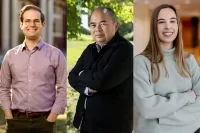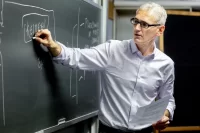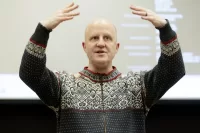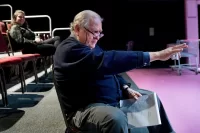
Ten members of the Bates College faculty have received promotions, including tenure awards, effective July 1, 2025.
The promotions were recommended by the Faculty Personnel Committee and approved by the Bates College Board of Trustees. This year’s promotions comprise three assistant professors promoted to associate professor with tenure; five associate professors promoted to professor; and two lecturers promoted to senior lecturer.
“Each of these faculty members advances the mission of Bates with great distinction,” said Malcolm Hill, vice president for academic affairs and dean of the faculty. “They are effective and inspiring educators as well as accomplished scholars and artists whose work expands knowledge and perspective in their fields. Each is highly engaged in our community, contributing in meaningful ways to the governance of the college and to the betterment of our broader society.”
Ian-Khara Ellasante, promoted to associate professor of gender and sexuality studies
Terminal degree and institution: Ph.D., University of Arizona
Scholarly and creative work: Trans poetics and life-writing, Black and Indigenous feminisms and solidarities, cultural identity persistence, and reproductive justice. Ellasante is also an award-winning poet whose current manuscript was a finalist for the National Poetry Series 2024 competition.
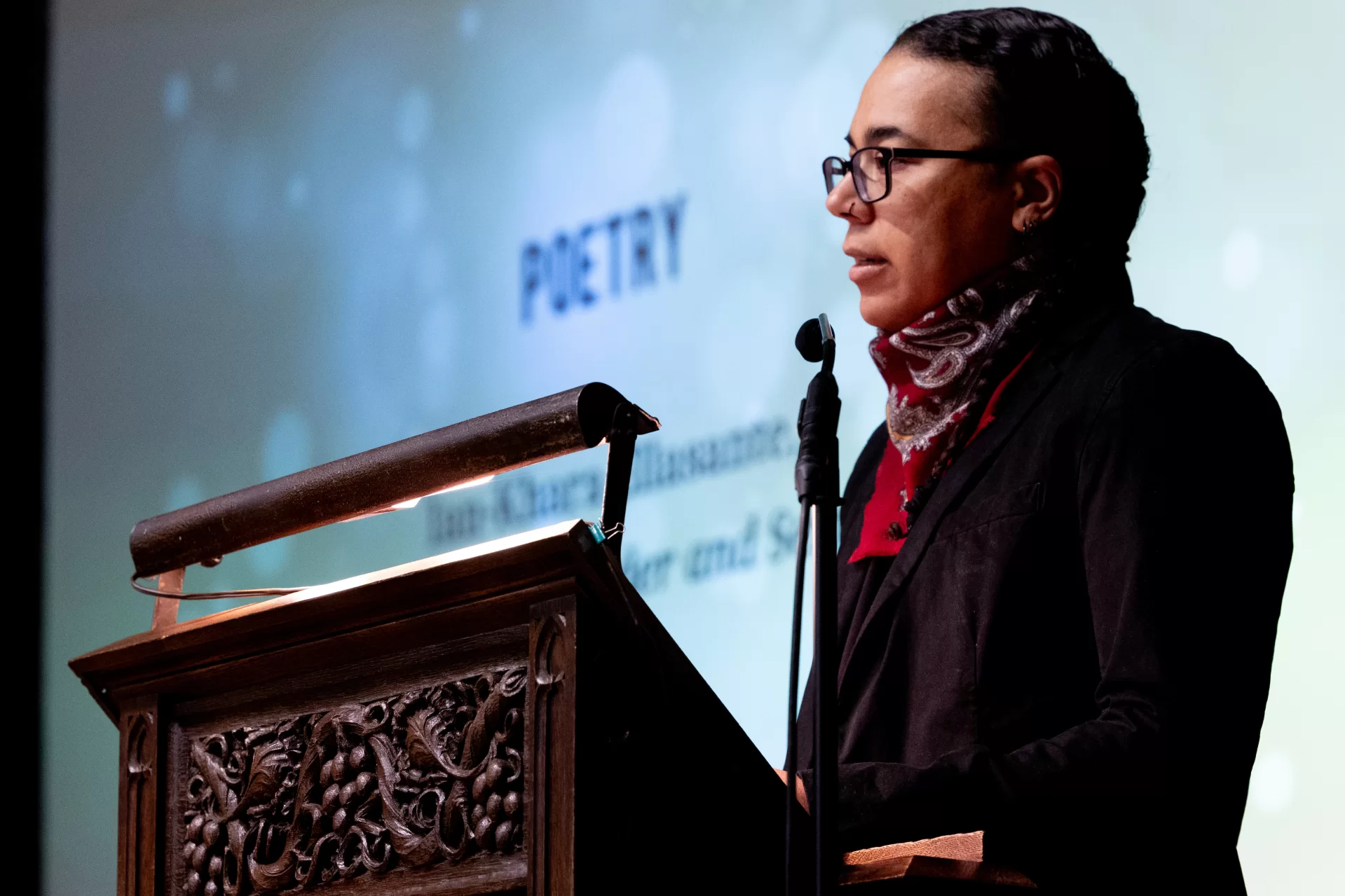
Courses taught include: “Race, Ethnicity, and Feminist Thought,” in which students examine race, ethnicity, and national power at their intersections with gender and engage with modes of critical and liberatory theorizing that challenge conventional ideas of what constitutes theory. Students are encouraged to practice intentional self-reflection throughout the course.
What it means to be a Bates professor: At Bates, I co-create learning communities every semester alongside the remarkable students in my classes. Their diligence and deep engagement with our course topics, from their myriad positions, motivate and sustain my pedagogical approaches. Being a Bates professor also means working alongside warm and insightful colleagues to support the governance of the college. Being at Bates also means learning and working within the vital communities of Lewiston–Auburn.
Myronn Hardy, promoted to associate professor of English
Terminal degree and institution: M.F.A., Columbia University
Scholarly and creative work: Hardy is an award-winning poet who has authored six volumes of poetry, including Aurora Americana, published by the Princeton University Press in 2023. Hardy’s poems have appeared in Ploughshares, POETRY, The New York Times Magazine, Virginia Quarterly Review, Washington Square Review, and The Baffler.
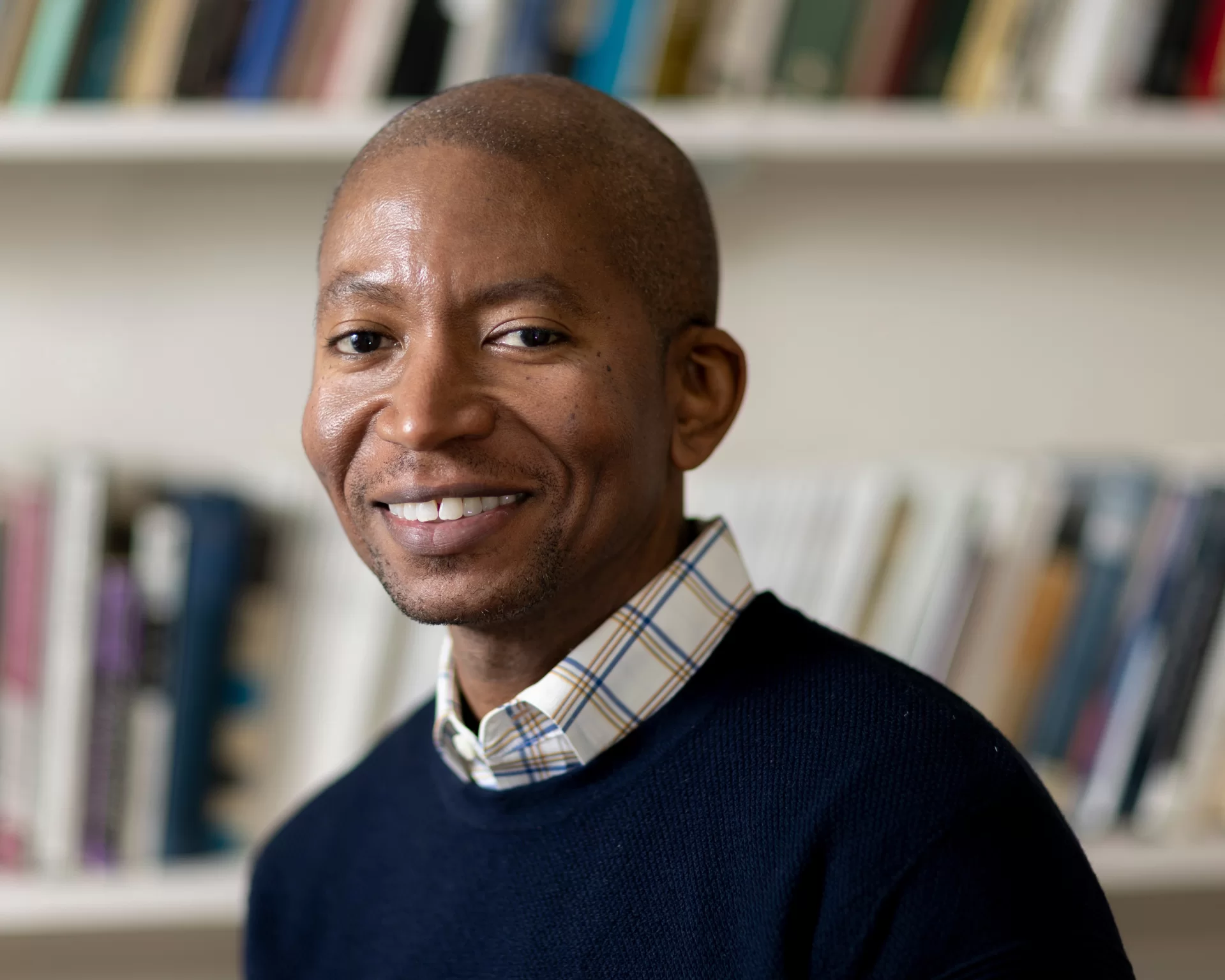
Courses taught include: “The Aesthetics of Seeing: Poetry as Witness,” in which students explore how poets transform experiences of trauma and beauty into poetry, studying writers like Carolyn Forché, Yusef Komunyakaa, and Mahmoud Darwish through discussion, close reading, and writing.
What it means to be a Bates professor: The willingness of Bates students to be experimental in their thinking and thrive in that experimentation is what I relish. Here, my colleagues are generous and supportive. This is a wonderful community.
Asha Tamirisa, promoted to associate professor of music
Terminal degree and institution: Ph.D., Brown University
Scholarly and creative work: Experimental music, media art, and media history research, drawing from sound studies, media archeology, feminist science and technology studies to situate the tools, materials, and methods of media arts practice.
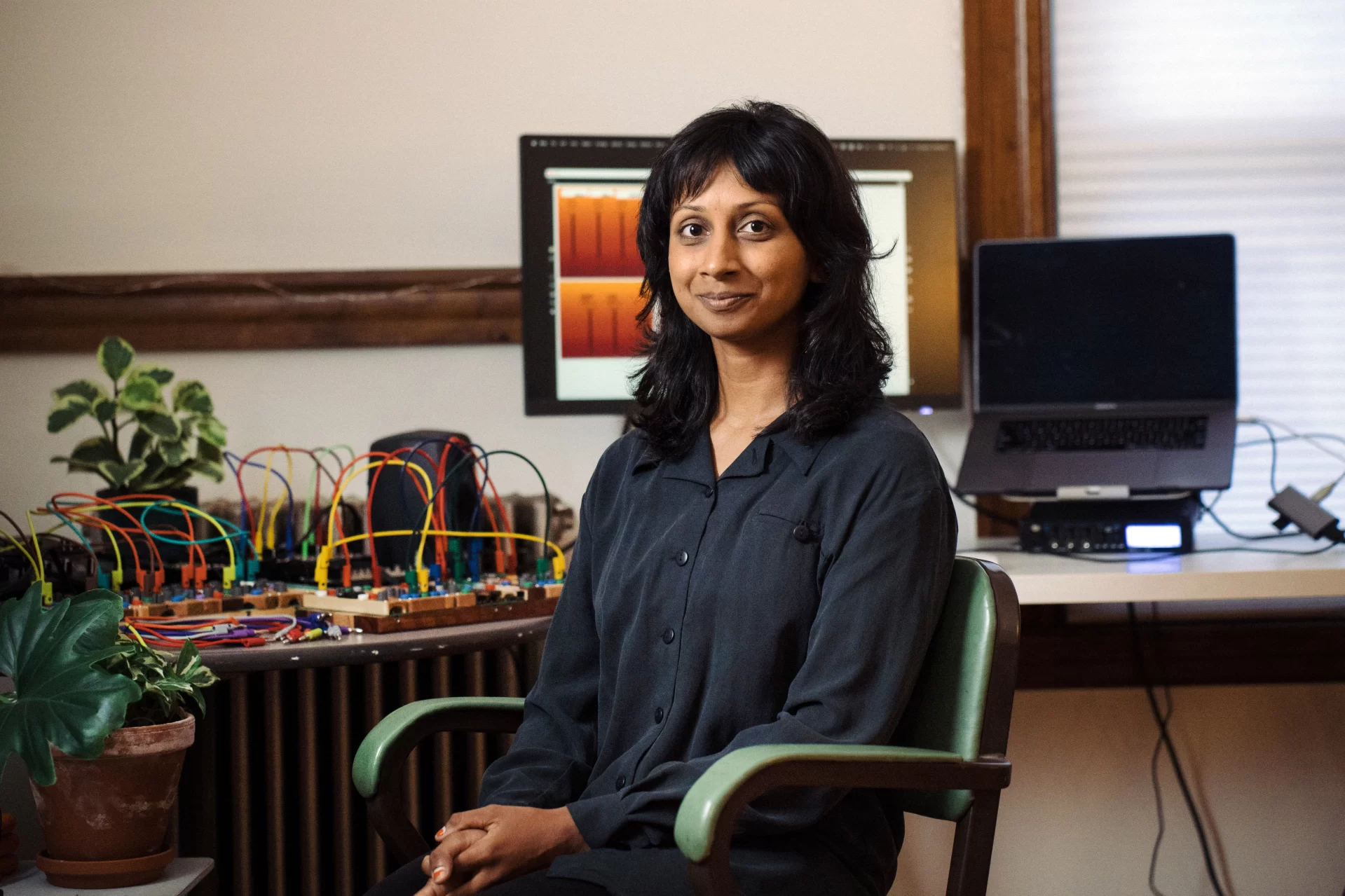
Courses taught include: “Immersive Media Installation,” an interdisciplinary creative production course that guides students through theoretical and technical frameworks for combining sound, video projection, and liveness in the conceptualization of collaborative artworks. Students exhibit their installations in Bates’ Immersive Media Studio (IMStudio).
What it means to be a Bates professor: Being a part of the Bates community means being humbled by the wisdom of my colleagues, peers, and students and growing together toward greater care for the world around us. Teaching at Bates means engaging with students conversationally and experientially, and encouraging students to become conscientious media makers as well as community members.
Lauren Ashwell, promoted to professor of philosophy
Terminal degree and institution: Ph.D., Massachusetts Institute of Technology
Scholarly and creative work: Metaphysics, philosophy of mind, epistemology with a focus on self-knowledge of desire, philosophy of language on gendered slurs and hate speech, and feminist philosophy.
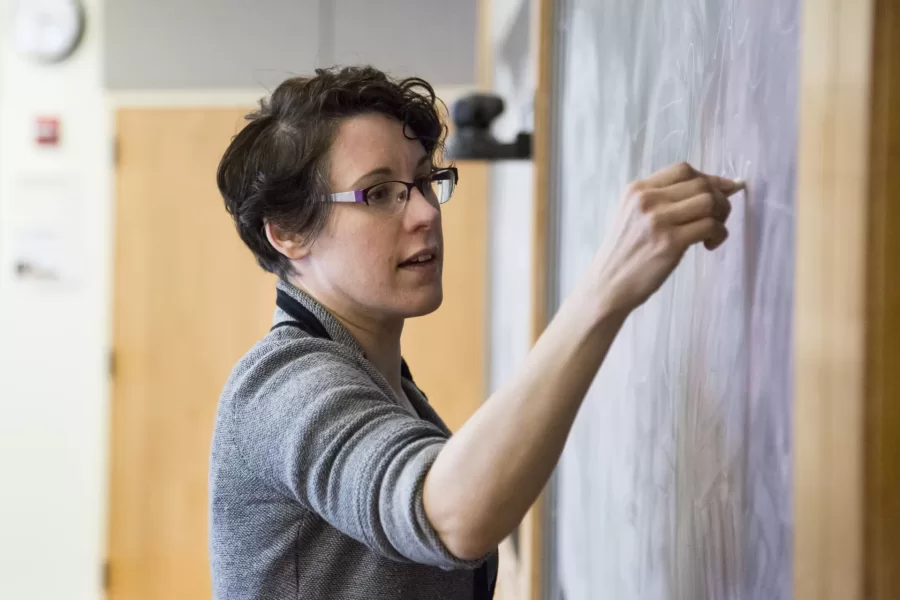
Courses taught include: “Topics in Contemporary Mind and Language: Language and Power,” in which students use philosophy of language to explore how speech can empower or harm, analyzing topics like free speech, slurs, propaganda, social identity, and resistance.
What it means to be a Bates professor: Especially in challenging times, it is wonderful to be surrounded by students who aren’t afraid of investigating hard questions, other faculty who are so committed to supporting our students and to the educational mission of the college, and all the staff who expertly manage the day-to-day running of the college.
Carrie Diaz Eaton, promoted to professor of digital and computational studies
Terminal degree and institution: Ph.D., University of Tennessee
Scholarly and creative work: Interdisciplinary and inclusive undergraduate STEM education using mixed methods including computational, data science, and digital narrative approaches grounded in a complex adaptive and ecological systems perspective.
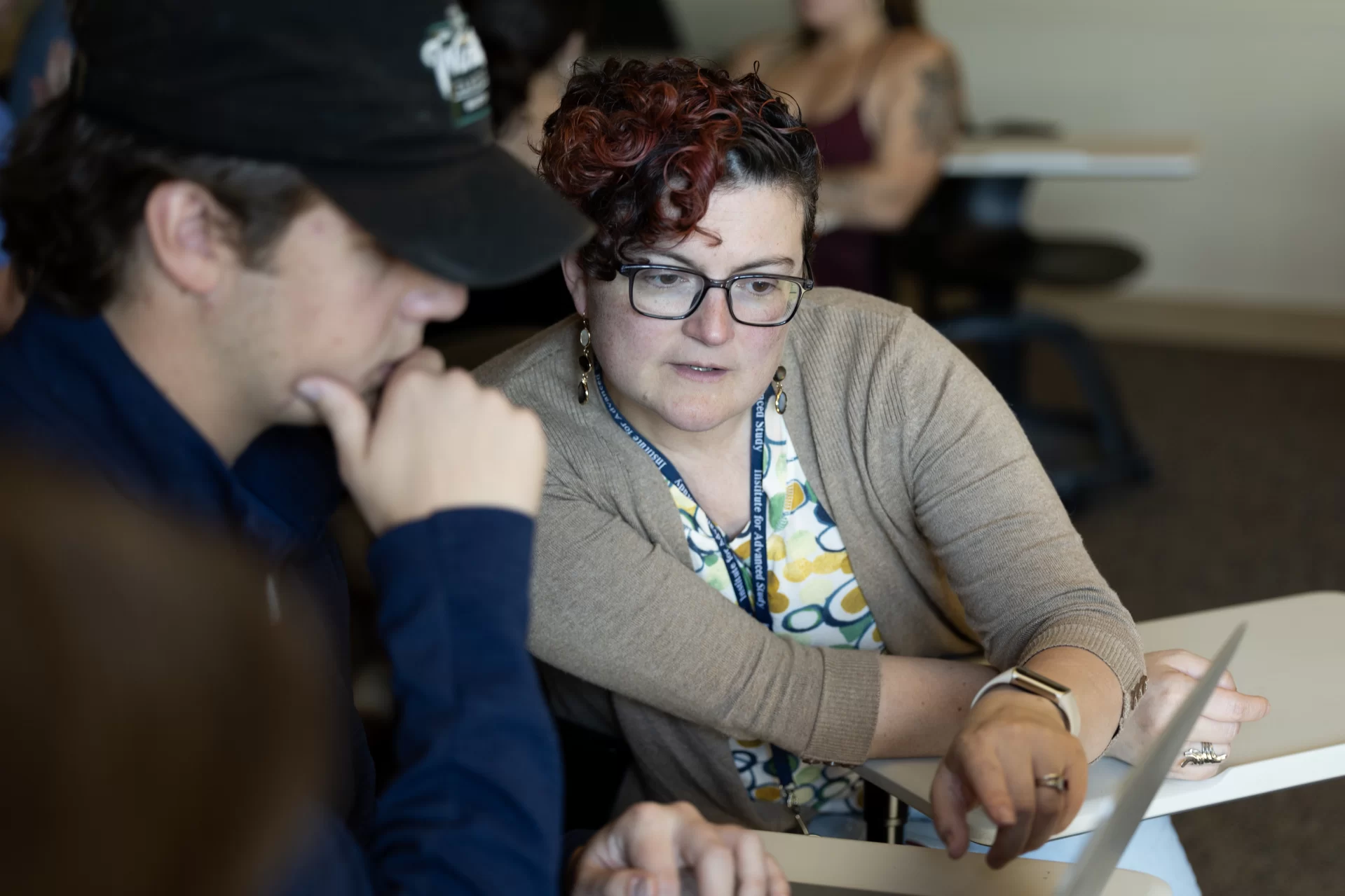
Courses taught include: “Calling Bull: Data Literacy and Information Science,” in which students learn to call out misinformation by dissecting data-driven claims, spotting statistical traps, studying real-world cases, and using the R programming language to analyze and visualize evidence.
What it means to be a Bates professor: To be at Bates means that I have pursued the invitation to be borderless — across disciplines and departments, across students, staff, and faculty, across institutions, across cultures — and to embrace Nepantla, the knowledge that arises from working at these borders. It allows me to surround my quantitative and computational teaching in the joy of learning new things together from each other.
Clarisa Pérez-Armendáriz, promoted to professor of politics
Terminal degree and institution: Ph.D., University of Texas
Scholarly and creative work: How international migration affects politics in migrants’ origin countries and the political participation of migrants who return to their origin countries, with a focus on how Mexican immigrants living abroad influence politics and political attitudes and behaviors in Mexico.
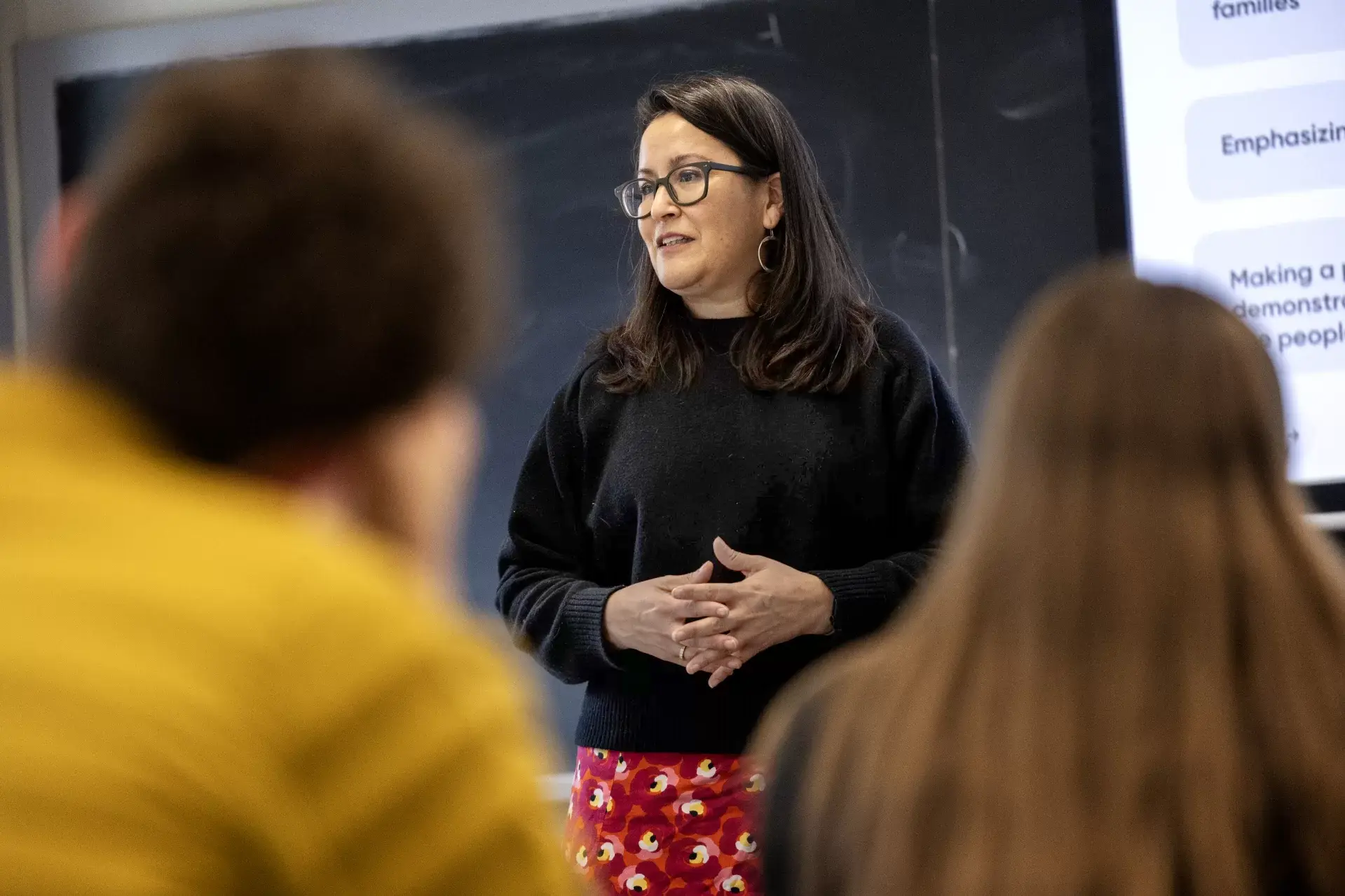
Courses taught include: “How Democracy Dies,” in which students investigate how and why democracies collapse under elected leaders, drawing lessons from past and present cases to understand and learn how to defend democracy today.
What it means to be a Bates professor: Being a Bates College professor means being responsive to students as learners and developing adults, recognizing the varieties of knowledge, experiences, habits, interests, and values that each student brings to campus and the fact that each entering class is different from the last. It means keeping up with new research in my field, of course, but also adapting how and what I teach to evolving norms, technologies, and pedagogical approaches. It means thinking critically about the kind of world my students are entering after Bates and asking myself and my awesome colleagues what it means to be prepared for that world.
Mara Tieken, promoted to professor of education
Terminal degree and institution: Ed.D., Harvard University
Scholarly and creative work: Rural education, college access and persistence, community organizing, race, and class in rural communities, with a special interest in rural school closure and consolidation.
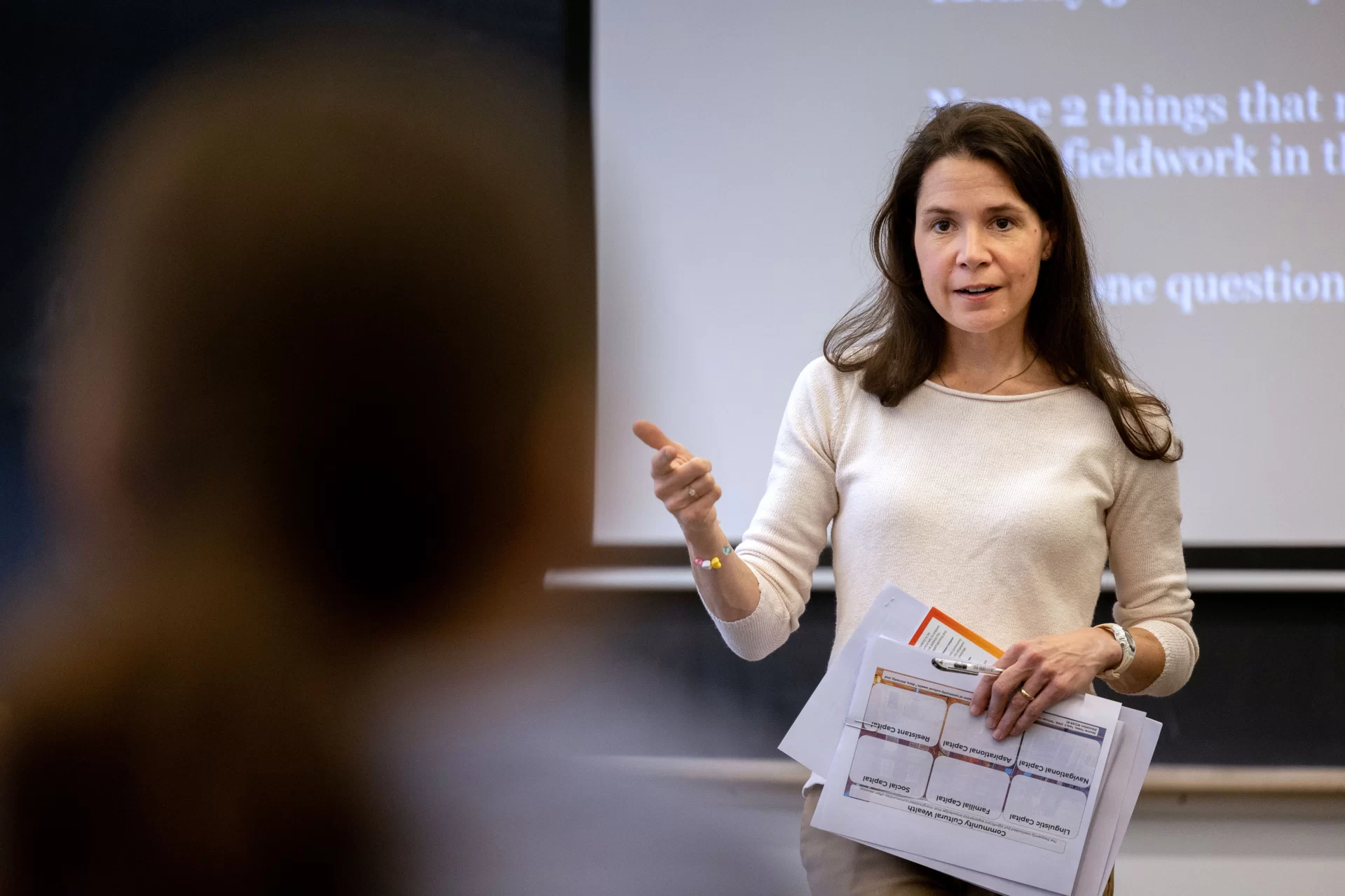
Courses taught include: “Race and Justice in American Education,” in which students reflect upon their own schooling experiences and fieldwork in the local schools to explore the racialized historical and current structures of public education and envision a more equitable and just future.
What it means to be a Bates professor: To me, being a Bates professor means working with students to envision and promote a more just educational system and world. It means partnership, reflection, and passion. It means deep ties to community, locally and beyond. And it means the immense privilege of loving what I do.
Larissa Williams, promoted to professor of biology
Terminal degree and institution: Ph.D., North Carolina State University
Scholarly and creative work: Biological importance of genetic variation and cellular and molecular responses to toxicants, with a specific interest in how transcription factor proteins work to coordinate normal development in zebrafish.
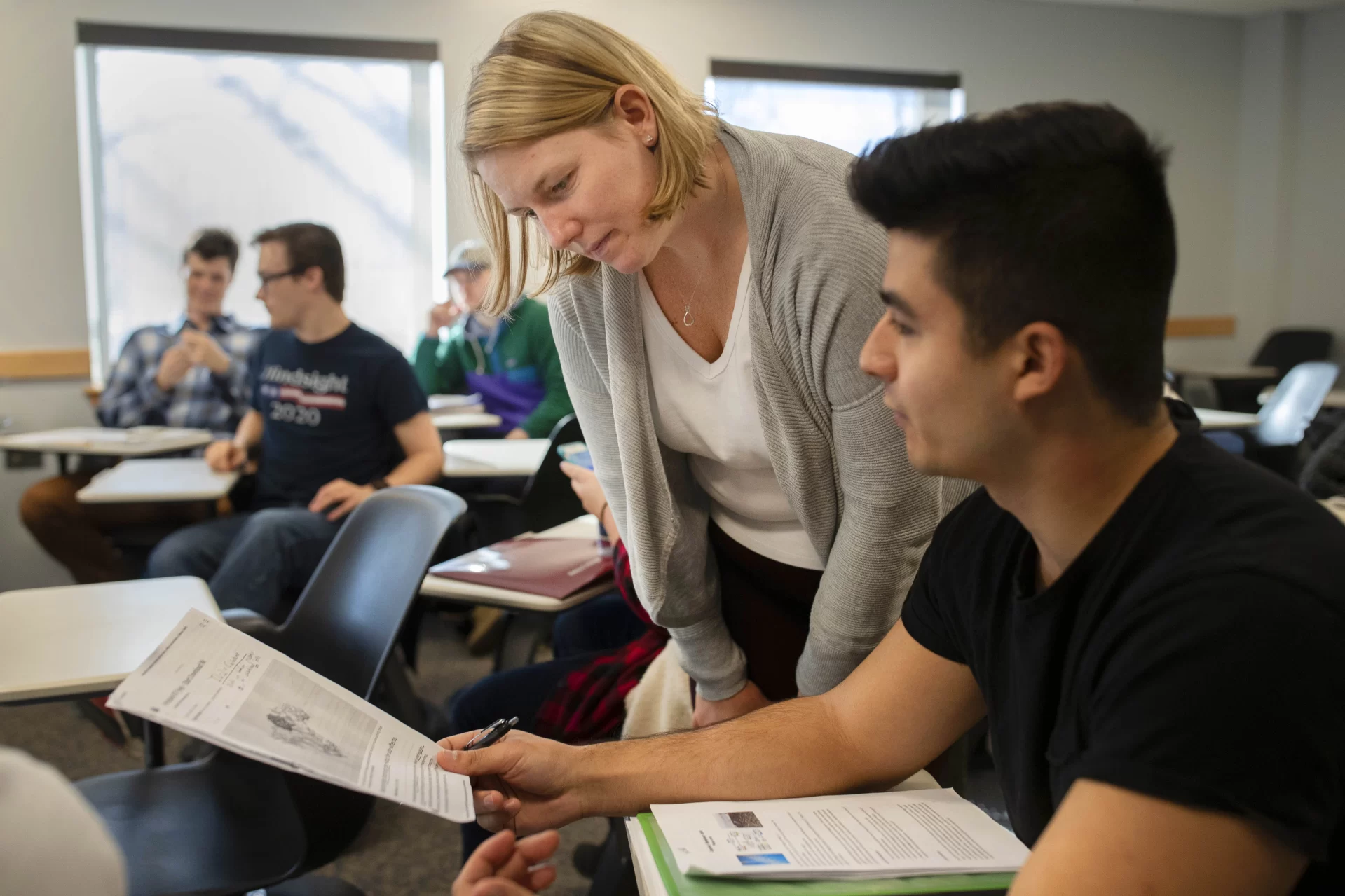
Courses taught include: “Lab-Based Biological Inquiry: Poisons,” in which first year students build research skills through open-ended, authentic experimentation of the natural world, and survey historical and emerging poisons, examine their impact on human health, and test the behavioral and molecular effects of exposure to poisons.
What it means to be a Bates professor: I’m so incredibly lucky to be surrounded by amazing colleagues and students who are all curious and passionate about learning. I am also particularly grateful to collaborate with so many folks at Bates in my research program — they are true partners with me in knowledge creation and dissemination.
Jessica Anthony ’96, promoted to senior lecturer in English
Terminal degree and institution: M.F.A., George Mason University
Scholarly and creative work: An award-winning novelist, Anthony is the author of four books of fiction including The Most, published by Little, Brown and Company in 2024. Her novels have been published in over a dozen countries, and have been featured in Time, Newsweek, Esquire, The Guardian, The Wall Street Journal, and The New York Times Book Review’s “Editors’ Choice” column.
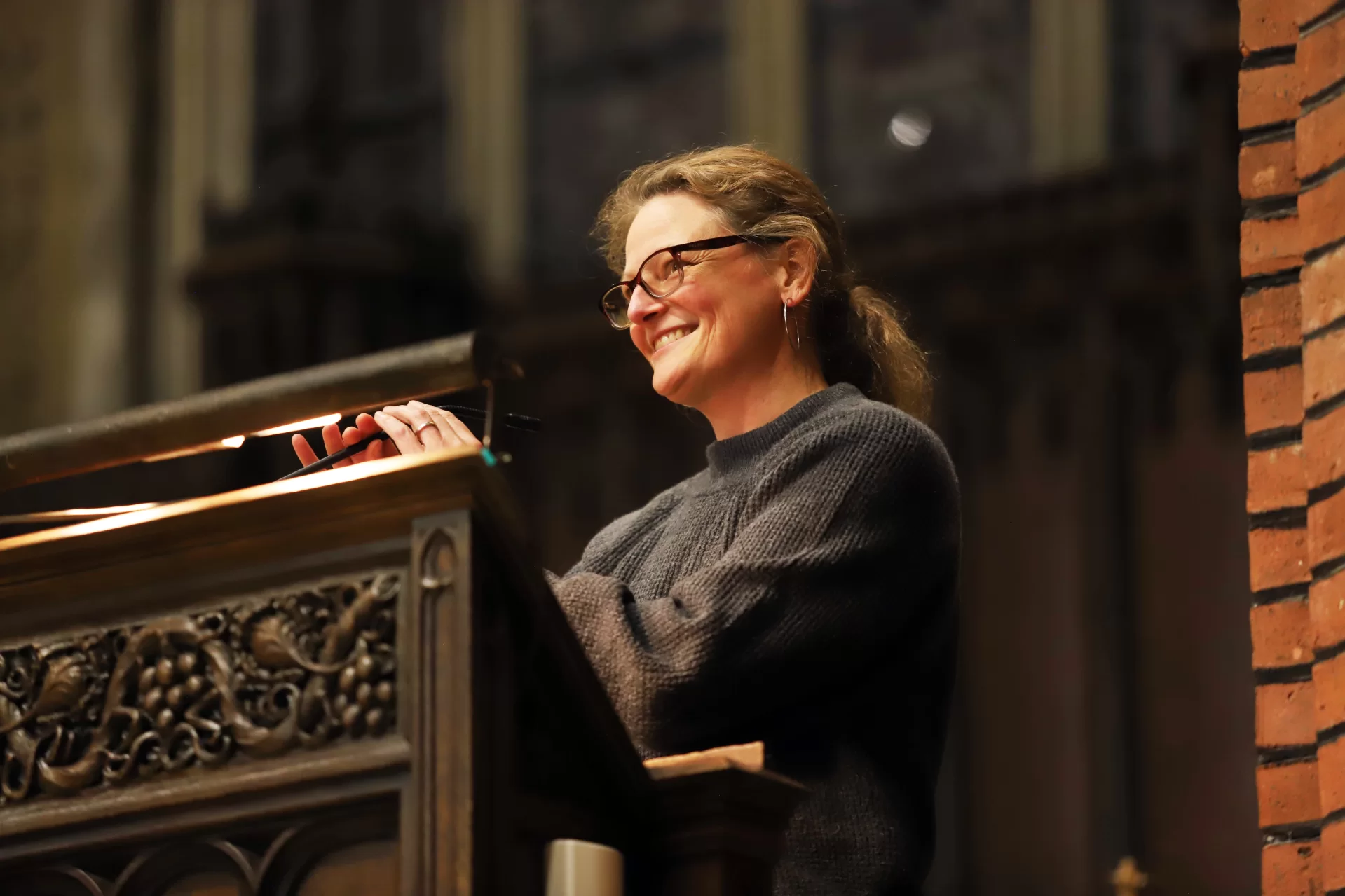
Courses taught include: “Autofiction,” in which students analyze novels that exist as inventions of the self, and creatively experiment with homonymy among the author, narrator and the characters.
What it means to be a Bates professor: There is truly no place like Bates. Every year setting foot on campus, I recall my own experiences as a Bates student, and am filled with joy and appreciation that my life’s work can exist here, in conversation with the work of others. I am constantly humbled by the intellectual rigor and talents of my colleagues and students, and could not be more grateful to be a part of this extraordinary community.
Laura Balladur, promoted to senior lecturer in French and Francophone studies
Terminal degree and institution: Ph.D., Duke University
Scholarly and creative work: Translation in theory and practice, French and Francophone cinema, the relationship between literature and science, critical theory, and the embodied mind. Currently, she is working on a creative nonfiction project that blends personal memoir with the history and present-day realities of the Democratic Republic of the Congo, focusing on both its colonial past and its contemporary context.
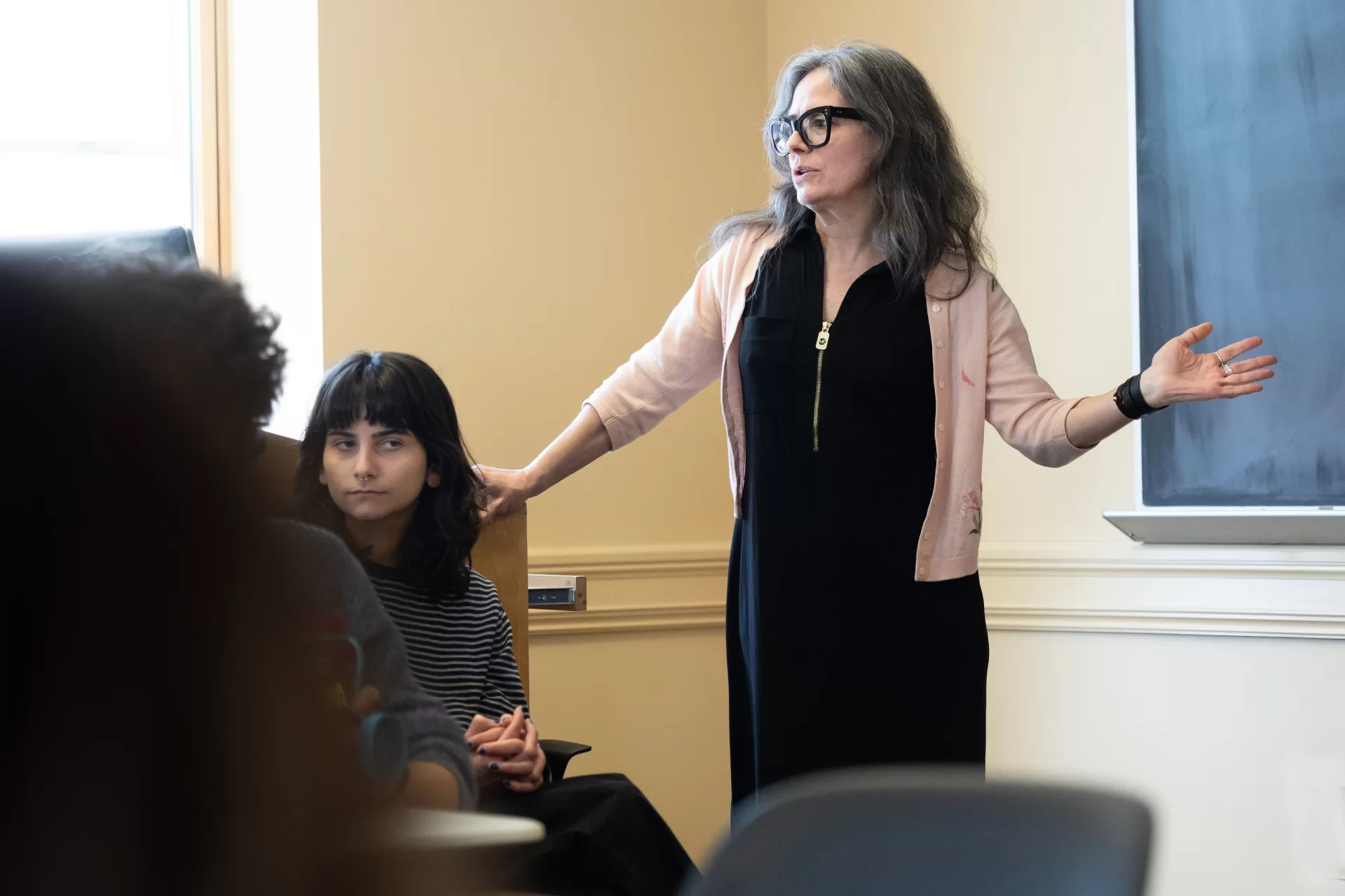
Courses taught include: “Translation: Theory and Practice,” in which students engage with the politics of language, power, gender, and representation in French and Francophone literature and poetry. The course emphasizes how translation functions not only as a linguistic practice but also as an ideological and cultural one — revealing structures of exclusion, silencing, and resistance. Students come to understand translation as a political act.
What it means to be a Bates professor: Being a Bates professor gives me the freedom to explore wide-ranging ideas — both in the classroom and through my research. I’m fortunate to work alongside colleagues who inspire me to grow as a teacher and scholar. In the classroom, I’m privileged to teach curious, creative students, and I value cultivating a learning environment grounded in imagination, collaboration, and authentic voice.
Faculty Featured
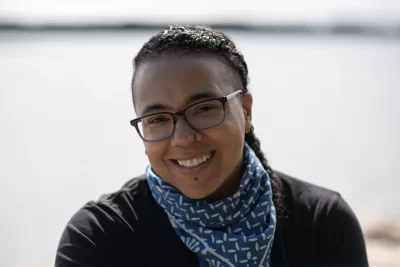
Ian Khara Ellasante
Associate Professor of Gender and Sexuality Studies
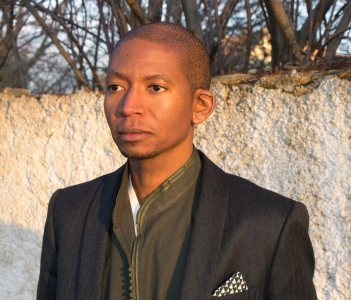
Myronn E. Hardy
Associate Professor of English
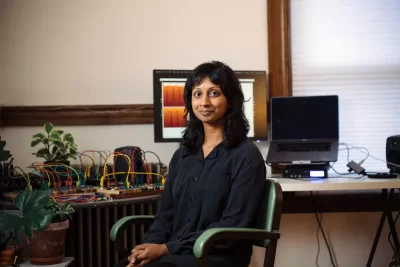
Asha K. Tamirisa
Associate Professor of Music
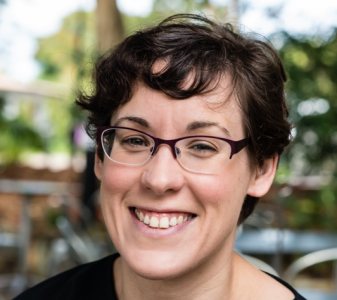
Lauren M. Ashwell
Professor of Philosophy
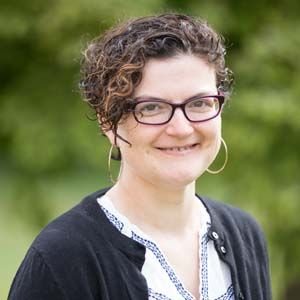
Carrie Diaz Eaton
Professor of Digital and Computational Studies
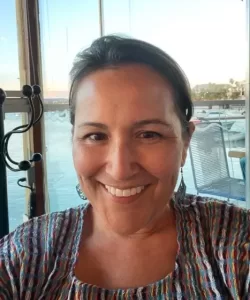
Clarisa Pérez-Armendáriz
Professor of Politics
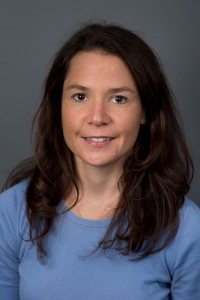
Mara C. Tieken
Professor of Education
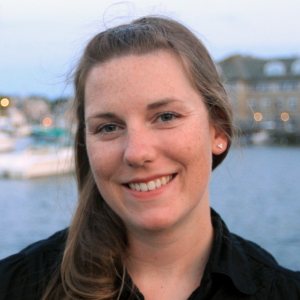
Larissa M. Williams
Professor of Biology
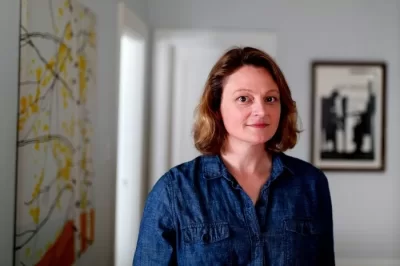
Jessica L. Anthony
Senior Lecturer in English
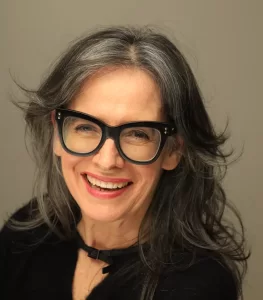
Laura C. Balladur
Senior Lecturer in French and Francophone Studies
